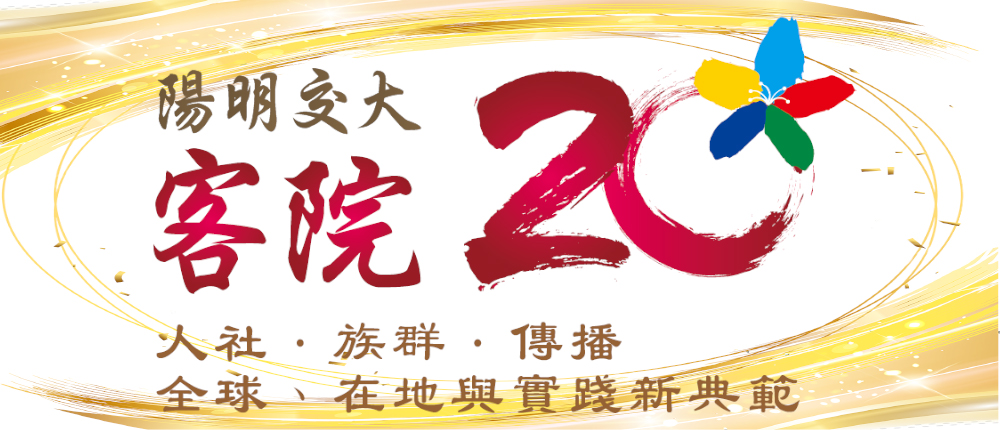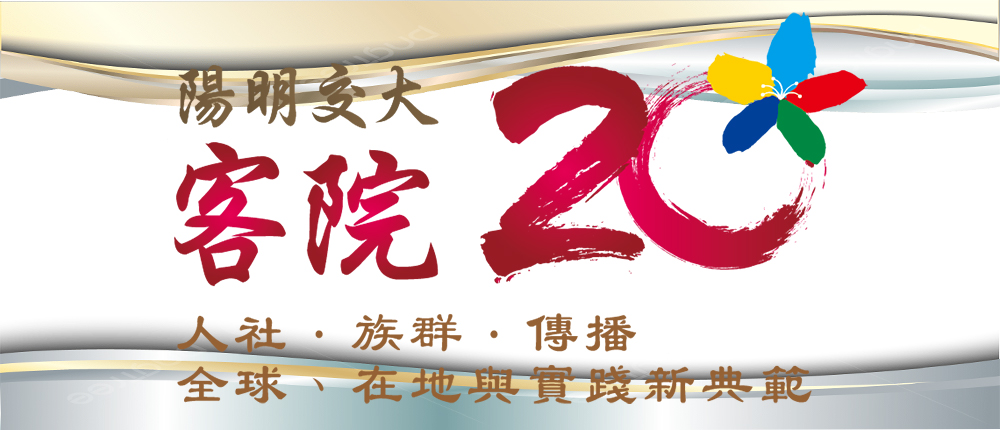Following the two international academic seminars organized by the Hakka Culture Development Center and Minpaku in Taiwan in 2017 and in Japan in 2018 respectively, and their joint publication of Museum and Hakka Studies in 2018, National Chiao Tung University's College of Hakka Studies in turn conducted the 3rd International Symposium on October 5th and 6th this year. On the first day, emeritus professor, Watanabe Yoshio, from the Tokyo Metropolitan University, was invited to present a special lecture with a title of Memories of Hakka Studies and Investigations in Taiwan. Influenced by anthropologist Professor Mabuchi Tōichi, Professor Watanabe had come to research the Hakka regions of Taiwan during the same period as Professor Akashi Uematsu (1970s- ). His research findings have inspired many Taiwanese and Japanese research scholars. During the two days of presentations and discussions, the topics were focused on Early Hakka Studies, Hakka Studies by Scholars from Chinese Background, Study on Southern and Coastal Hakka, and Study on Taiwanese Hakka. The results of Hakka research by ten Japanese scholars and seven Taiwanese scholars were reviewed, and bilateral dialogue on centuries of Hakka research was conducted. In addition to the two-day international symposium, field visits to Xinpu and Guanxi in Hsinchu County were also arranged for Taiwanese and Japanese scholars before and after the symposium. The scholars revisited the research sites of Taiwanese Hakka studies by early Japanese scholars, such as the Yimin Temple, the Two Houses of the Liu Family and the Ancestral Shrine Museum in Xinpu, the Taihe Temple in Guanxi, and Lo Ink House. The field visits to the Hakka settlements which are full of diverse characteristics, allowed the young Taiwanese and Japanese scholars to better understand Taiwan ’s Hakka culture and develop opportunities for future cooperation and exchanges.
In his speech, Chiun-Hsun Chen, Senior Vice President of National Chiao Tung University, hopes that National Chiao Tung University is not only an excellent academic institution, but can also contribute to the development of Hakka culture. Therefore, he hopes that the College of Hakka Studies in Zhupei can become a local museum, cultural center and an important hub for the development of Hakka culture in Asia. He hopes that this symposium can draw on Taiwan and Japan's experience in Hakka research, and continue in exchange and cooperation.
Associate Professor Kawai Hironao from Minpaku said that cooperation with the Hakka Culture Development Center and National Chiao Tung University can be traced back to the Study of Hakka People in Japan seven years ago. At that time, Japanese scholars lacked systematic research on Hakkas in Japan, yet that Hakka study had considerable impact on Japan's Hakka research. The perspective of this symposium is different from previous studies. By specifically discussing the research of 14 Japanese scholars and including anthropology, folklore, history, linguistics and architecture, the symposium is an attempt to further understand the Japanese Hakka research. He hopes that there can be more exchanges between Hakka studies in Taiwan and Hakka studies in Japan.
Last, Chang-Chen Yang, Deputy Minister of the Hakka Affairs Council said that the academic cooperation between the Hakka Culture Development Center, Minpaku and National Chiao Tung University's College of Hakka Studies is in its third year, which shows the energy and perseverance of the tripartite cooperation. They will continue to focus on Taiwanese Hakka, diverse ethnic groups and overseas Hakkas, cooperate with Minpaku in Japan and domestic and overseas academic units, expand domestic and overseas Hakka research exchanges and cooperation, and jointly study and plan themed discussions or exhibition so that the exchanges between Hakka research institutes can be more fruitful. Next year in 2020, the tripartite international symposium will be hosted once again hosted by the Hakka Culture Development Center, and he hopes that scholars worldwide can continue to present and engage in exchanges.

*Symposium group photo

*Visiting the Yimin Temple.

*Visiting the Lo Ink House in Nanshan Village, Guanxi.

*Scenery of farms in Nanshan District, Guanxi.










